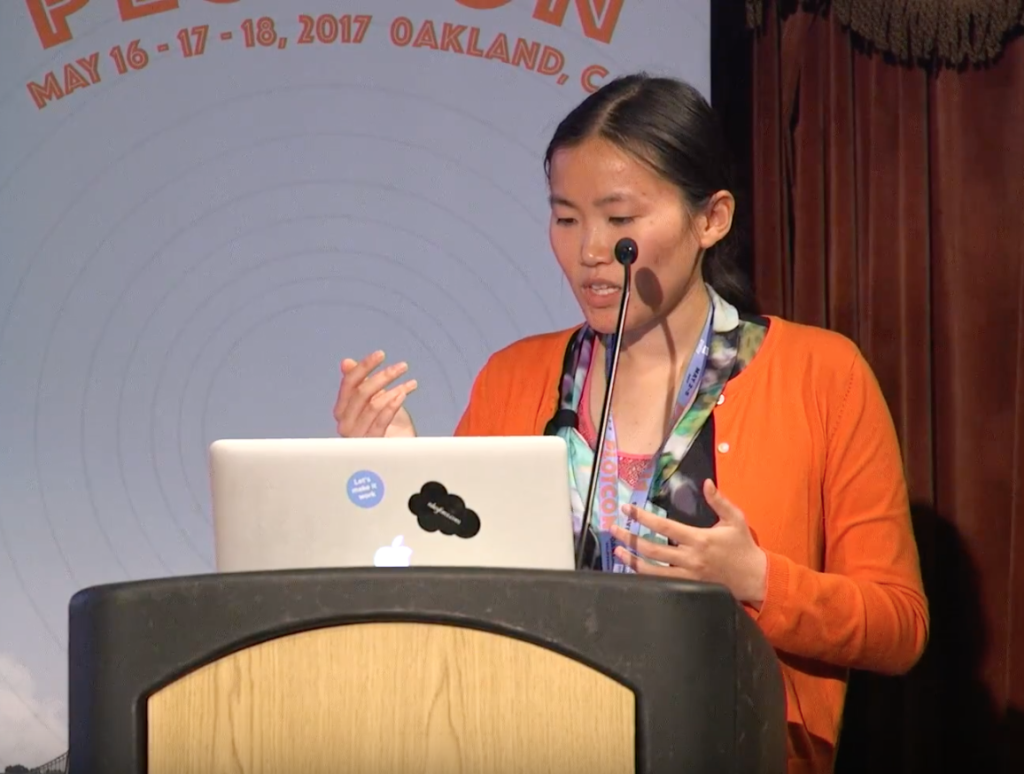
Picture yourself in front of a crowd, demoing the project you work on everyday. The demo goes without a hitch and the audience is impressed. When you walk off the stage, the audience applauds you for a job well done.
Hey, that can be you!
As developers, we like to write the code. However, sharing what you have done can be just as fulfilling. Consider the benefits of sharing your project:
- Boost your resume by adding “public speaking” to your list of skills.
- Attend a conference for free, and learn from the other speakers.
- Travel to new places.
- Showcase the project to attract talent.
- Get brand exposure for your company. What’s not to like about free marketing?
- Increase project adoption, especially if it’s open sourced.
- Get live feedback from your target users.
I experienced these benefits first-hand. Having spoken at both meetups and conferences, and having hosted a meetup to promote an open source project, I have been through it all. Here’s how you can get started as a meetup or conference speaker this year.
First things first: know your goals
Prioritize the benefits mentioned above. What is the most important to you? Who are your target audience? Keep a list of conferences and meetups where your target users or contributors are. It is good to include both conferences AND meetups, as you may access a slightly different crowd in each. Diversify the list of possibilities to increase your chances of getting accepted.
Also keep the audience size in mind. In terms of audience size, bigger is usually more expensive to attend and/or host and is not always better. Hosting your own meetup to get feedback from the target audience can be more effective than attending a conference that is remotely related to your technology.

Meetups vs conferences: what’s the difference?
Meetups are often more frequent, have smaller (more intimate) audience, and are less expensive to host and/or sponsor. Meetups are a great way to get your foot in the door for sharing your project or product!
When researching meetups, check with the meetup organizer for when the next available speaking slot is. If they have one, take it! It is a perfect opportunity to hone your speaking skills and get feedback from the organizers and attendees before wowing a wider audience. The tighter feedback loop is invaluable when growing your experience and acquainting yourself with speaking on stage.
Conferences can be more well-known and do provide a bigger resume boost. However, they are held infrequently. Unless you know the people who review speaking applications, the feedback loop can be longer than your local meetup. Nevertheless, conferences are wonderful for accessing a larger audience, and a good excuse to travel to get more exposure for your product or project.
Does your company sponsor conferences? Great! Apply to any sponsored conferences.
My colleague Kamil Smuga found out that Salesforce was sponsoring Code Motion Italy and had two speaking slots available. He filled a slot to get land his first conference speaking engagement.
For his second conference speaking opportunity, the Salesforce team that coordinates conference sponsorships learned about his talk at Code Motion and asked him to repeat the demo at OSCON.
His subsequent speeches were results of submitting proposals for CFPs (call for proposals) and leveraging the success of previous talks. Kamil feels his successful past conference engagements led to his presentations being accepted, even at high-volume conferences like Velocity.
Lesson here? Sponsorship can be a fast ticket to your first speaking gig, and make sure to leverage any previous speaking successes in speaking applications.
What’s Next?
After listing your goals for speaking at related conferences and meetups, start writing your application! It’s lots of hard work to fine-tune your topic to a new audience. Some of the work may feel futile, as your proposal won’t be accepted everywhere you apply. Nothing easy is worth doing, right?
Once your talk is accepted, it’s time to draft the actual presentation. How can you make your technical presentation relatable and interesting? This could merit its own separate post, though it’s already covered by Zach Holman, one of the most readable and entertaining tech bloggers. His advice? Use live demos sparingly.

More great resources:
- Toastmasters is an organization which helps you develop presentation and leadership skills. Instead of paying for expensive professional coaching (which you may need at the large conferences), the price of two coffees is enough for an entire month’s of meetings, where you get real time feedback from people who are new to your project. Even after being a member for 3+ years, I learn something new at every meeting!
- https://weareallaweso.me/ provides encouragement and how-tos for presenting technical topics.
- https://2014.cssconf.eu/news/how-to-write-a-great-talk-proposal-for-a-tech is a deep dive into the proposal writing step.
- Lanyard and this GitHub page list conferences to help you identify where you’d like to submit proposals.
- The one and only Zach Holman has written extensively on public speaking. My favorite post of his: https://speaking.io/deliver/what-they-dont-tell-you-about-public-speaking/
Once you get a speaker slot, it’s time to practice. The common saying “practice makes perfect” is mostly true. Practice with your team first to weed out obvious problems before wowing an external audience. The more you practice, the easier the presentation becomes, until you can comfortably cover the key points in a few minutes AND wow the audience. This can only come from practice.
Conclusion
These are the first steps to prepare presentations that spark conversation with your current and future users. The amount of prep will pay off when you’re having fun on-stage and achieving your presentation goals!
Have fun presenting!






